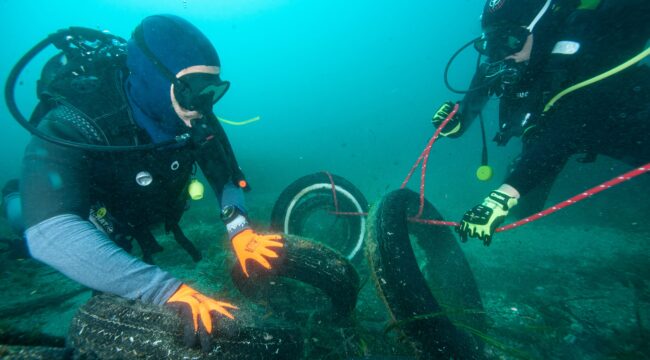Objectives and content
This highly practical training program, which leads to a diploma equivalent to a bachelor’s degree, includes periods spent in companies alternating with periods at the training center: students benefit from classroom and field-based teaching. These lessons and practical exercises aim to equip students with a range of tools and methods for studying, monitoring, and managing natural marine environments, in response to regional issues and the need to implement related public policies.
Photogrammetry, scientific and professional diving (CAH), drone and ROV piloting are just some of the professional skills and certifications that can be obtained during this course, combined with related scientific knowledge of nature.
The training hours, grouped into modules, aim to certify six skill sets:
- In response to a problem, define a strategy for collecting data in the field, sampling, exploiting, and reporting this data for diagnostic and advisory purposes for the management of marine and coastal environments.
- Design marine and coastal environmental development and management projects that address the environmental challenges of the territories concerned.
- Lead and implement ecological engineering projects: field campaigns,
- Plan and facilitate consultation between stakeholders as part of a coastal management project.
- Communicate professionally, design and facilitate actions to disseminate knowledge or project deliverables.
- Conduct a reflective analysis of a professional project involving the diagnosis or management of marine and coastal environments.
Prerequisites and access to training:
This training program is open to applicants with a two-year degree in natural sciences (such as a BTS GPN, first two years of a Bachelor’s degree in Life and Earth Sciences or Geography, or equivalent). It is also open to people undergoing professional retraining, provided they have a keen interest in marine biodiversity and wish to acquire naturalist skills in this field.
Applicants must have Level 3 scuba diving certification or PA 40 minimum (CMAS 3* or equivalent).
Recruitment is based on application and individual interview: send your application (resume and cover letter), then you will be invited for individual tests and an individual interview if selected based on your application.
Organization and Schedule
This Bachelor’s degree is offered in two different formats, on a work-study basis: either under a professional training contract or as an independent candidate in continuing education, lasting 12 or 10 months respectively, during which periods in the company alternate with periods at the training center:
Under a professional training contract, the work-study student must first find a host company and sign a professional training contract. On a work-study basis in a
host company, over a period of 12 months, with 455 hours of training and 1,365 hours (39 weeks) in the company, this type of contract allows the employer to benefit from reductions in social security contributions and possible coverage of tuition fees. The work-study student acquires operational professional skills at the training center that can be directly applied in the host organization. The contract must cover at least the specified training period, but may begin before and end after that period.
As an independent candidate in continuing education, self-funded, over a total period of 10 months, the learner will complete 525 hours at the training center and a minimum of 2 x 8 weeks of internship in professional organizations. Internship expenses may or may not be covered, depending on the usual agreement rules.
Contact us for more information about the tuition fees for the training and related costs.
